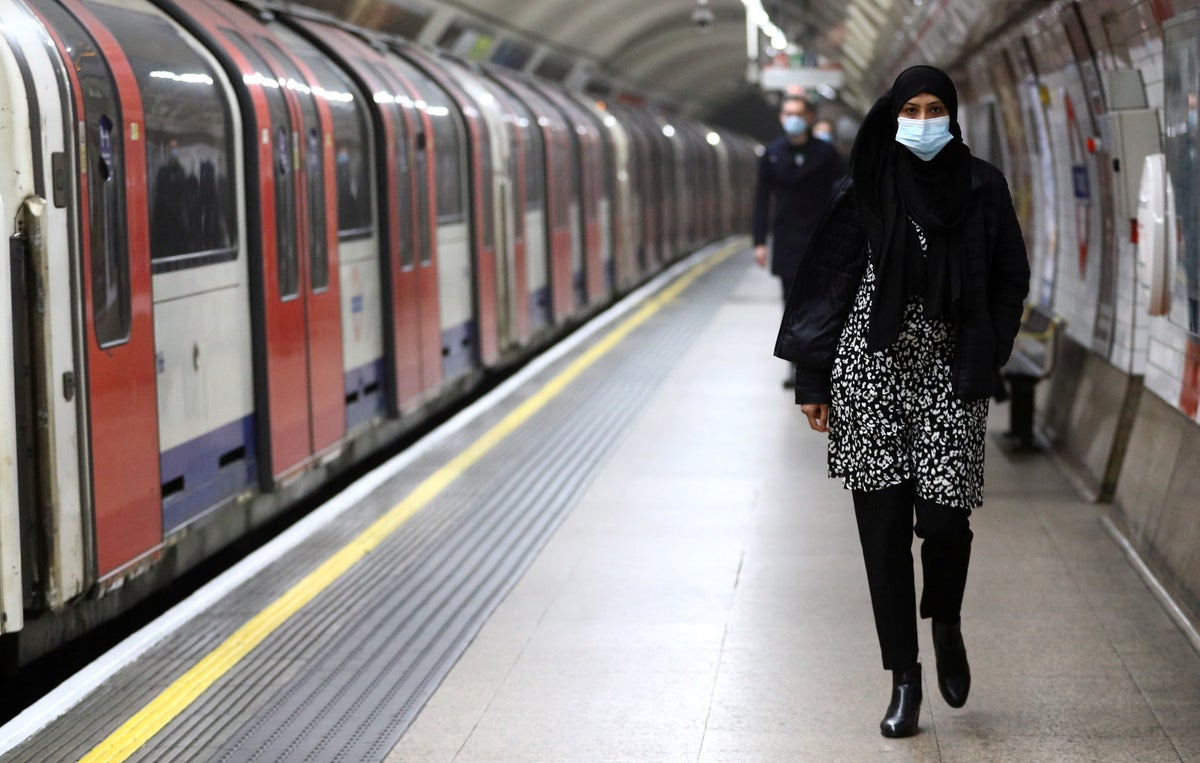
A rise in UK hospital admissions for patients with Covid-19 has prompted experts to warn that Britain could face a fresh wave of coronavirus infections.
Life has largely returned to normal since the final social restrictions were removed on 24 February, with masks, distancing and hand sanitiser largely forgotten by the majority as the national focus switched to Partygate, the war in Ukraine and the cost of living crisis.
But new figures published on Tuesday show weekly admissions have increased by 4 per cent across England as of 5 June and were up by 33 per cent in the North East and Yorkshire.
Asked by The Independent if the UK was heading into another wave, John Roberts, one of the leading analysts at the Covid Actuaries group, answered: “Yes we could be but... how big that wave and how serious it will be in terms of admissions and deaths is very, very difficult to judge at this stage.”
His comments come after experts in Europe warned there will be a new wave driven by the growth of the BA.5 and BA.4 Covid variants.
The last major spike in cases came in December and January, driven by the Omicron variant, which spread rapidly around the world after being discovered in southern Africa in late November, once more threatening Christmas celebrations and sparking a run on booster vaccines.
Omicron proved to be less severe but more transmissible than its predecessor Alpha and Delta variants, with total daily case numbers in England rocketing to a pandemic high of 218,724 on 4 January, according to the UK Health Security Agency, before gradually falling away.
Since then, only the over-75s have been offered second booster jabs, meaning that immunity could be beginning to wane.
“If we are going to go into another wave, maybe that’s something that ought to be reconsidered,” Mr Roberts suggested.
What public health officials had to learn on the fly when Omicron arrived last winter was how the variant differed from the original Covid strain.
Whereas the World Health Organisation estimated that symptoms took anywhere between two days to two weeks to materialise in cases of people infected with the first coronavirus strain, Omicron proved to incubate much faster, closer to three to five days.
“Recent analysis from the UK Health Security Agency suggests that the window between infection and infectiousness may be shorter for the Omicron variant than the Delta variant,” UK health secretary Sajid Javid told the House of Commons on 6 December.
That explained why the strain was able to spread so swiftly and successfully, as the shortness of its incubation period gave sufferers a shorter window between suspecting they had contracted the virus and experiencing a flare-up, making it less likely a positive lateral flow test result would be recorded in time to warn others, enter isolation and prevent the contagion being passed on.
A shorter incubation period “makes a virus much, much, much harder to control”, Jennifer Nuzzo, an epidemiologist at the Johns Hopkins Center for Health Security, observed in The Atlantic that same month.
Another characteristic of Omicron that made it potentially harder to detect than earlier strains – and worth bearing in mind should any new variant make in-roads on these shores – is that its symptoms differed somewhat from the three primary indicators we had been conditioned to be on the lookout for in 2020: coughs, fever and the loss of one’s sense of taste or smell.
Early warning signs for the newer variant, by contrast, included a scratchy throat, lower back pain, a runny or blocked nose, a headache, muscle pains and fatigue, sneezing and night sweats.
Omicron cases analysed in Britain found that patients typically recovered within five days to a week on average, although some symptoms like coughing and fatigue were likely to linger for longer.
Shortness of breath, experienced by some sufferers, often proved to last for as long as 13 days after other symptoms had passed.
Covid patients are, typically, thought to be infectious to others from around two days before their first symptoms start to materialise and for around 10 days after.
If you believe you have symptoms associated with the coronavirus, the current NHS advice is to take a lateral flow test and isolate at home for five days if you test positive to avoid passing it on to others (you should keep away from anyone likely to be particularly vulnerable because of their age or a pre-existing condition for 10 days).
If you do have to go out in public, you are encouraged to wear a face mask, avoid crowded indoor spaces and wash your hands for at least 20 seconds.
If you’re concerned about your symptoms or believe they are getting worse, you are advised to visit 111.nhs.uk, call 111 or call your local GP surgery.







